Barbara Chepaitis's Blog: http://aliterarylunch.blogspot.com/2015/07/frying-mad.html
January 6, 2019
MAGIC OF THE BRIDGE
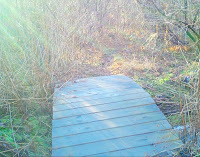 Small Bridge. Big Magic
Small Bridge. Big MagicLately everyone is yelling about walls, one way or another. I’m not a fan of building giant walls to keep people out, though I am fond of other kinds of walls - the ones my house is made of are all good, for instance. They keep us tucked in during the winter. They shelter us. And they have doors so other folks can join us in our shelter.
I’m also a really big fan of bridges. They connect here, to there, allowing you to cross over and back again. In that sense, the bridge is similar to writing. You go ‘there’ and get a story, then bring it back ‘here.’ You bridge the gap between your experience of the story and the mind of the reader. To me, that’s big magic.
I’m particularly fond of a bridge my husband built at the back of our land. It’s small, simple, and effective in doing what it was made to do. It crosses a seasonal stream that’s sometimes gushy and rushy, sometimes icey, sometimes just kind of trickley and muddy. Before the bridge, I often slipped into the stream, or on it as I tried to cross. Since I go over that seasonal stream every day with my dogs, the little bridge has certainly made it easier for me and Ziggy and Luna to get into the woods and have our walk.
And lately I’ve come to realize that it’s even more than convenient. It’s a magic connection between here and there, which appeals to others as well as us.
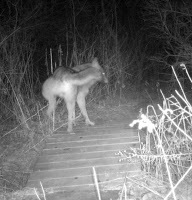 Coyote Leaves PeeMail
Coyote Leaves PeeMailIf there’s snow, I’ll often see tracks on it. Bunny, mouse, deer, coyote and fox. The dogs often stop there to sniff for a long time, which tells me something interesting has happened there the night before. And sometimes, I’ll find animal droppings. Sometimes I can’t identify them. then I’ll go home and tell my husband, “There’s some new shit on the bridge,” and we’ll try to figure it out.
Then, not too long ago we got an outdoor camera to see who’s coming to visit, and we placed it near the bridge. Shortly after I saw the Most Mysterious Poop of All, the camera showed us a picture of a Fisher hanging out on the bridge, early in the morning. Fisher poop. Now I know what that looks like. Over the summer a juvenile Green Heron posed admirably for the camera. We regularly get pictures of bunnies, other birds, deer, fox, or coyote.
This week the bridge has been in heavy use for the commuter crowd. We have a picture of a coyote, leaving peemail for the dogs. (They’d left some for him, so it was only courteous to responde promptly). Along with that was our first picture of a porcupine, and a Bobcat who posed nicely for us.
Yes. Bobcat.
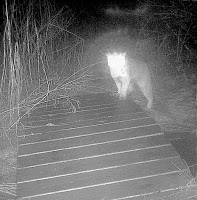
Our little bridge connects here to there, and there to here. It goes beyond what I thought it would do, and welcomes the neighbors to come closer.
I like that. It allows us to share in the lives of those whose land we occupy in a whole new way. It lets us know who’s here. It’s the closest I’ll get to knowing what the dogs know when they sniff.
So, while the world is shouting about walls, I’m hoping we get to place where we learn to value better the magic of bridges. The magic of connecting. The inherent joy of welcome, and safe passage.
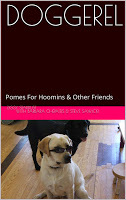 You can find Ziggy's new book, DOGGEREL: Pomes for Hoomins And Other Friends at amazon. So many of these Pomes are from our walks in the woods, including "Whose poop this is I think I know...."
You can find Ziggy's new book, DOGGEREL: Pomes for Hoomins And Other Friends at amazon. So many of these Pomes are from our walks in the woods, including "Whose poop this is I think I know...." MAGIC TIME BRIDGING BEET AND HORSERADISH SALAD
A lot of magic is contained in food, which is actually a time bridge. You knew that, right? All I have to do is catch the scent of garlic cooking in olive oil and I'm back at my grandmother's house, young and happy. And exploring foods from your heritage connects you to the people who are the earlier chapters of your story. So here's a recipe that's simple, but serves to bridge time for me in two ways. First, it's Lithuanian, and that's part of who I am as well. Second, it has horseradish, and it brings back memories of my father, grating fresh horseradish at the kitchen table. I can feel my sinuses clearing just thinking about it.
This is easy peasy. Enjoy!
4 good sized beets
1/4 to 1/2 cup grated horseradish (You get to decide how much is too much because you know the rule - Play With Your Food!)
Salt and pepper to taste
About 2 tablespoons fresh chopped dill (more if you like it really dilly dilly)
1/4 cup apple cider vinegar
Cut the leaves and stems and bottom root off the beets and wash 'em up good. They're going to a Salad Party!
Wrap them in aluminum foil, making sure they've got a bit of room to breathe, but also making sure the foil is closed well. Put it in the oven at 375 degrees for about 90 minutes, or until the beets are soft. Larger ones will, of course, take longer.
Let them cool, then peel them, and cut them into half inch pieces. (Or slices if you prefer, or a bit larger if you prefer because you know the rule - PLAY WITH YOUR FOOD!)
Toss them into a nice casserole dish and pour the vinegar over them, add the dill and horseradish, and season to taste. Mix it all up good. Let it hang around for an hour or two, then adjust flavors as you choose, and eat and enjoy.
Published on January 06, 2019 10:55
August 31, 2018
OLD WOMEN ROCK AND RULE
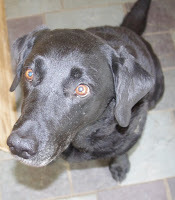 Luna is actually an Old Woman now Yes, I'm still celebrating my 20 year anniversary of first getting published, and I'm celebrating it with a novel I haven't published yet, because the work goes on. Of course it does.
Luna is actually an Old Woman now Yes, I'm still celebrating my 20 year anniversary of first getting published, and I'm celebrating it with a novel I haven't published yet, because the work goes on. Of course it does.Below is the first chapter of my not yet published novel The Aquarius Project, which features as its protagonist a young woman who can wish people dead. An interesting superpower, right? Think about it.
But of course, it starts with an old woman because, as it turns out, all my novels have old women in them.
I realized that recently in reviewing my work over the years. All my novels have important old women in them. You may ask why that's so. I'll answer.
My life was filled with strong and wise and strange old women. I expect to become one some day. I fully believe that wise old women are the salvation of the planet. And I know, from experience, that they can cook the best food. Sing along if you agree.
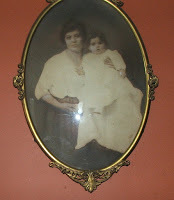 Grandma Campilli and Mom Jaguar Addams has two older women who teach her well. Feeding Christine is stuffed to the gills with old women. These Dreams has a crucial old woman in it. Something Unpredictable is predicated on the decisions of an old woman. The Amber has more than its share of old women. And so on. And so forth.
Grandma Campilli and Mom Jaguar Addams has two older women who teach her well. Feeding Christine is stuffed to the gills with old women. These Dreams has a crucial old woman in it. Something Unpredictable is predicated on the decisions of an old woman. The Amber has more than its share of old women. And so on. And so forth. Old women rock and rule the world. Really they do.
At any rate, here's the opening for The Aquarius Project, which does delve into aspects of politics and religion that are a bit disturbing. For instance, what if we were actually the gods we pray to? And what happens when everyone can get whatever they want by wishing for it? Just stuff to think about.
And of course, there's a recipe below. Something I learned from my mother, who learned it from her mother, and both of whom eventually became old women, as I hope I will.
THE AQUARIUS PROJECT: FIRST CHAPTER
Preliminary Data
The old woman stirred, feeling the shift of particular molecules somewhere far away. She listened, seeking the source.
It was not quite sunrise, and she hadn’t yet tugged her ancient body out of bed, but she’d found that within the confines of flesh, this was a good time to be still and listen. The jagged edge of dawn cut through the crap of the day and told her what she needed to know.
As she listened, she sensed energy wrapped in a piece of matter known as Cali Spring, a young woman who sat in a science class and listened attentively while another piece of matter known as her teacher spoke about quantum fields. She was surrounded by energy the old woman knew as teenage girls - very restless pieces of matter. They were passing notes, because the piece of matter known as the teacher tolerated no talk. They had to avoid any disruption in the field of this classroom, but that didn’t mean they had to listen.
The piece of matter named Cali Spring listened.
She was intrigued by the notion of the quantum field, and the irreconcilable differences it dealt with. She was, in general, intrigued by irreconcilable differences. Her interest was both intellectual and personal.
The old woman, who also rejoiced in the dance of irreconcilable differences, was intrigued by Cali Spring. Both she and Cali were momentary manifestations of intangible fields, which were the only real things in the universe.
She considered the infinite variety of those fields. She laughed, and listened to the echoes of her own laughter. Laughter was one way of admiring a universe that spit out many odd things, such planets, stars, aardvarks, a creature that would invent a word like aardvark. Things like Cali Spring, and herself, here to do the work of matter for a while.
The old woman got out of bed. She had many random and chaotic events to face, as the human population veered toward a change both great and meaningless. Great, because it would extend human boundaries beyond the discovery of fire. Meaningless, because no one knew about it.
Some of the results would be unpleasant, but all would lead to a moment when her field and the field that was Cali Spring might interact abruptly, in particular regions of absurd space.
You can find all of my writing at Amazon. And here's a recipe handed down from old women.
ROMA BEANS BY MOM AND GRANDMA
My mother told me this is something she learned from her mother, an Italian woman from Abbruzzi. It has the flavors of other nations in it, and is quite quite yummy.
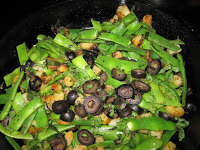
2 cups (approximate) Roma green beans. (These are the flat green beans, but you can substitute any other green bean you like if you can't find them.
1/2 to 1 cup black olives (because it's about what you like and you know the rule: PLAY WITH YOUR FOOD)
1 cup diced pre-cooked potatoes (you can boil potatoes and dice them, or use canned and dice them depending on your preference and convenience)
Garlic powder
Paprika
1/4 cup dried mint, crushed between your palms because it feels good to crush herbs in your palms.
3-4 tablespoons fresh mint, chopped fine
3 clovers garlic, grated or put through a presser
Olive oil
Pepper (A goodly amount)
Salt
Set a salted pot of water to boiling on the stove. While it's getting hot, clean up the Roma green beans - stem them, and string any that have strings - then break them in pieces about an inch long.
Also put your diced potatoes in a bowl and season with salt, pepper, garlic powder, and paprika.
When the water comes to a boil put the beans in it for about 1 to 2 minutes. NO MORE! You're just parboiling them. As soon as that's done, dump them into a bowl and talk to them nicely, telling them to cool down a bit please.
Start a skillet (preferably an iron skillet - the kind you'd hit someone with if they threatened your life) on high heat. Toss in about 2 tablespoons of olive oil.
When it's sizzling, start adding the diced potatoes. Let them go for a bit, to develop a nice kind of crunchy exterior.
Add the olives, then the mint. Stir it all around like doing the Hokey Pokey.
Add the Roma beans. Toss in more oil if it seems dry. Stir it around more. Toss and play and sniff and test because you know the rule: PLAY WITH YOUR FOOD!
When all the various aspects are mixed together well, turn off the heat. Let it settle a bit, then think of your grandmother or any other old woman worthy of respect, and
serve. Enjoy. Mangia Buona!
Find me on Facebook, and tell me your stories of old women, and how they fed you!
Published on August 31, 2018 09:41
July 20, 2018
ALL ABOUT THE LOVE
Really. It is all about the love. And the stars are a way of reminding us about that. They shine through the night, when perhaps we're feeling most vulnerable, most afraid. They will talk to you, if you sit still and consent to listen. Really they will.
So today, I'm offering an excerpt from my fantasy novel Children of the Land, which is different than most current novels because it moves toward utopia, something I still believe in.
Yeah, I'm that optimist child who is put in a room full of horse manure and digs happily through it, saying, "with all this s**t, there must be a pony down there somewhere. I never got over that sensibility. I doubt I ever will.
Anyway, here's an excerpt from Children of the Land , where one of the characters is trying to figure out what she should do next, in light of a rather fascist regime that wants to kill her. I'm guessing that doesn't sound unfamiliar to many women right now. And in my view, the answer is still love. Not like Hallmark love. Not like romantic love even. But the fiercest love. The love of a mother for a child, the love of all of us who love the planet and will do anything to protect it. The love that moves mountains, moves politics, moves anything to protect the actual basis of being loving human beings. The love that moves toward all goodness, and resists all evil. That love. You know what I mean. Here it is, followed by a recipe for fried squash blossoms, because food is always love.
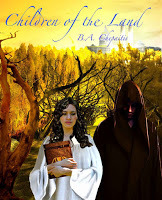
FROM: Children of the Land
The moon sank below the horizon while all slept except the Stranger, who stayed watching the night sky. Vareka slept hard, sinking into dreams of places and people she did not know. Then, suddenly, she was awake, as if called. She turned to see if she could find what woke her.
She saw the Stranger standing at the crest of a hill. A light shone around him. She stared at it, blinking in wonder. His cloak glowed with stars, pinpoints of light playing on him as if he were the night sky. She gasped and sat up. He heard, and turned to her.
"There are stars," she said softly.
He shifted, and the light dispersed. He walked to her, squatted beside her. "Sleep, Lady. I'm watching," he said.
"I saw stars," she repeated. "You - you're made of stars."
His face remained shadowed but his voice held a smile. "We all are. As a Citizen schooled in science, you know this. We are made of the same stuff as the stars." He pointed toward the nearby lake. "Long ago pieces of a star fell into that lake and married the water, creating the elements needed for life. That small life grew and changed and walked out of the water to become - well, many lives, including yours."
She shook her head. "That's just science. It only explains how. But I feel the hardship of moving from star to human self, and I do not understand why any creature would choose such pain. You - you see more than how. You know why."
"You perceive that?"
"Yes. I see it in you."
"So soon," he murmured. Your vision returns too soon, and you are not ready for it. Lady, wait in patience. You'll learn what you need to know in Okara. For now, you should rest."
"I'll rest better for hearing your answer. Perhaps it will sweeten my dreams, which are hard to bear of late."
"Perhaps," he said. He picked up a handful of the soft, sandy soil and let it run through his fingers back to the ground. He considered it, and then he spoke.
"It was all done for love, my Lady," he said. "The stars breathed themselves into flesh to learn love, and love, alive, is the son the earth sings back to the spinning stars. The Children of the Land endured the transformation from star to watery home to breathing bodies only for love, and the the strangest creatures of our dreams bring us only to that singing. Our lives are no more or less than this. We are stars, and we came here to learn love."
The core of her unspoken yearnings told her this was true. She had waited her whole life only to hear this said and, it seemed, said this way by this Stranger. For it wasn't only his words, but his being that touched her. His presence shone with what lived beyond words - river and sky and the song of the galaxy's spinning stars. He called her to listen beyond words, to stories that only flesh curved over bone could know.
CHILDREN OF THE LAND is available here. In the meantime, here's a recipe to play with - flowers that are stars of the summer land. Yum. Or as the French say, Miam.
FRIED BLOSSOMS – SWEET
(NOTE: My family tradition is unusual in that we make a sweet version of the blossom. If you want savory, you can either: 1) Omit the sugar, and dip the blossoms in bread crumbs after the batter, or 2) stuff the blossoms with about a tablespoon of ricotta, parsley or other herbs that seem good to you, then dip in batter and fry. Of course you can amend what you stuff with, or use herbs with the bread crumbs because you know the rule. PLAY WITH YOUR FOOD!)
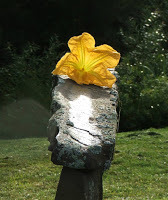 Miam!12 or so Zucchini blossoms, and if available some ELDERBERRY BLOSSOMS. I mean, really. Yum. (BTW - some people say don’t pick the male flowers, but I’m all for gender equality. In fact, I pick the ones with tiny zucchini still stuck to the blossom and fry them up as well)
Miam!12 or so Zucchini blossoms, and if available some ELDERBERRY BLOSSOMS. I mean, really. Yum. (BTW - some people say don’t pick the male flowers, but I’m all for gender equality. In fact, I pick the ones with tiny zucchini still stuck to the blossom and fry them up as well)
Enough canola oil to half fill a good sized skillet.
Confectioner’s sugar for sprinkling on the joyous blooms.
BATTER:1 cup cake flour (yeah, it does make a difference)
1/4 cup potato starch or corn flour
1/2 teaspoon baking power
1 egg white
About 1 cup ICE WATER (I mean, really cold) or REALLY COLD sparking water.
1/4 cup sugar (for sweet version)
Mix the dry ingredients in a medium sized bowl. Add the water and egg white, stirring gently and leaving better lumpy and undermixed. Chaos is your friend here.
Keeping the batter Brrrr Cold, start the oil heating up until it reaches 370 degrees. Drop a bit of batter in the oil and see if it sizzzles. If so, you're ready for action.
Dip the blossoms in the batter, getting them nicely covered (because they’re feeling shy right now). Lay the blossom in the oil. You can fry about three at once, but NO MORE! They don’t like crowds.
When the flower’s golden brown on one side (just shy of a minute), flip it over. Let it get golden brown on the other side and remove from the oil, putting it on a paper towel to briefly drain.
Put all your flowers on a plate, sprinkle liberally (because we are liberal people, aren’t we?) with confectioner’s sugar, and serve to friends and strangers, near and far.
So today, I'm offering an excerpt from my fantasy novel Children of the Land, which is different than most current novels because it moves toward utopia, something I still believe in.
Yeah, I'm that optimist child who is put in a room full of horse manure and digs happily through it, saying, "with all this s**t, there must be a pony down there somewhere. I never got over that sensibility. I doubt I ever will.
Anyway, here's an excerpt from Children of the Land , where one of the characters is trying to figure out what she should do next, in light of a rather fascist regime that wants to kill her. I'm guessing that doesn't sound unfamiliar to many women right now. And in my view, the answer is still love. Not like Hallmark love. Not like romantic love even. But the fiercest love. The love of a mother for a child, the love of all of us who love the planet and will do anything to protect it. The love that moves mountains, moves politics, moves anything to protect the actual basis of being loving human beings. The love that moves toward all goodness, and resists all evil. That love. You know what I mean. Here it is, followed by a recipe for fried squash blossoms, because food is always love.

FROM: Children of the Land
The moon sank below the horizon while all slept except the Stranger, who stayed watching the night sky. Vareka slept hard, sinking into dreams of places and people she did not know. Then, suddenly, she was awake, as if called. She turned to see if she could find what woke her.
She saw the Stranger standing at the crest of a hill. A light shone around him. She stared at it, blinking in wonder. His cloak glowed with stars, pinpoints of light playing on him as if he were the night sky. She gasped and sat up. He heard, and turned to her.
"There are stars," she said softly.
He shifted, and the light dispersed. He walked to her, squatted beside her. "Sleep, Lady. I'm watching," he said.
"I saw stars," she repeated. "You - you're made of stars."
His face remained shadowed but his voice held a smile. "We all are. As a Citizen schooled in science, you know this. We are made of the same stuff as the stars." He pointed toward the nearby lake. "Long ago pieces of a star fell into that lake and married the water, creating the elements needed for life. That small life grew and changed and walked out of the water to become - well, many lives, including yours."
She shook her head. "That's just science. It only explains how. But I feel the hardship of moving from star to human self, and I do not understand why any creature would choose such pain. You - you see more than how. You know why."
"You perceive that?"
"Yes. I see it in you."
"So soon," he murmured. Your vision returns too soon, and you are not ready for it. Lady, wait in patience. You'll learn what you need to know in Okara. For now, you should rest."
"I'll rest better for hearing your answer. Perhaps it will sweeten my dreams, which are hard to bear of late."
"Perhaps," he said. He picked up a handful of the soft, sandy soil and let it run through his fingers back to the ground. He considered it, and then he spoke.
"It was all done for love, my Lady," he said. "The stars breathed themselves into flesh to learn love, and love, alive, is the son the earth sings back to the spinning stars. The Children of the Land endured the transformation from star to watery home to breathing bodies only for love, and the the strangest creatures of our dreams bring us only to that singing. Our lives are no more or less than this. We are stars, and we came here to learn love."
The core of her unspoken yearnings told her this was true. She had waited her whole life only to hear this said and, it seemed, said this way by this Stranger. For it wasn't only his words, but his being that touched her. His presence shone with what lived beyond words - river and sky and the song of the galaxy's spinning stars. He called her to listen beyond words, to stories that only flesh curved over bone could know.
CHILDREN OF THE LAND is available here. In the meantime, here's a recipe to play with - flowers that are stars of the summer land. Yum. Or as the French say, Miam.
FRIED BLOSSOMS – SWEET
(NOTE: My family tradition is unusual in that we make a sweet version of the blossom. If you want savory, you can either: 1) Omit the sugar, and dip the blossoms in bread crumbs after the batter, or 2) stuff the blossoms with about a tablespoon of ricotta, parsley or other herbs that seem good to you, then dip in batter and fry. Of course you can amend what you stuff with, or use herbs with the bread crumbs because you know the rule. PLAY WITH YOUR FOOD!)
 Miam!12 or so Zucchini blossoms, and if available some ELDERBERRY BLOSSOMS. I mean, really. Yum. (BTW - some people say don’t pick the male flowers, but I’m all for gender equality. In fact, I pick the ones with tiny zucchini still stuck to the blossom and fry them up as well)
Miam!12 or so Zucchini blossoms, and if available some ELDERBERRY BLOSSOMS. I mean, really. Yum. (BTW - some people say don’t pick the male flowers, but I’m all for gender equality. In fact, I pick the ones with tiny zucchini still stuck to the blossom and fry them up as well)Enough canola oil to half fill a good sized skillet.
Confectioner’s sugar for sprinkling on the joyous blooms.
BATTER:1 cup cake flour (yeah, it does make a difference)
1/4 cup potato starch or corn flour
1/2 teaspoon baking power
1 egg white
About 1 cup ICE WATER (I mean, really cold) or REALLY COLD sparking water.
1/4 cup sugar (for sweet version)
Mix the dry ingredients in a medium sized bowl. Add the water and egg white, stirring gently and leaving better lumpy and undermixed. Chaos is your friend here.
Keeping the batter Brrrr Cold, start the oil heating up until it reaches 370 degrees. Drop a bit of batter in the oil and see if it sizzzles. If so, you're ready for action.
Dip the blossoms in the batter, getting them nicely covered (because they’re feeling shy right now). Lay the blossom in the oil. You can fry about three at once, but NO MORE! They don’t like crowds.
When the flower’s golden brown on one side (just shy of a minute), flip it over. Let it get golden brown on the other side and remove from the oil, putting it on a paper towel to briefly drain.
Put all your flowers on a plate, sprinkle liberally (because we are liberal people, aren’t we?) with confectioner’s sugar, and serve to friends and strangers, near and far.
Published on July 20, 2018 14:29
June 21, 2018
SOLSTICE SOUL
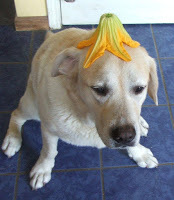 Ziggy's Solstice Hat We call the Solstice the longest day of the year although, let's be real, it's still only 24 hours. But it is the most hours of daylight, which is worth celebrating. I like to call it the Day the Sun Sticks Around. My Lithuanian ancestors called it Rasa, The Day of Dews.
Ziggy's Solstice Hat We call the Solstice the longest day of the year although, let's be real, it's still only 24 hours. But it is the most hours of daylight, which is worth celebrating. I like to call it the Day the Sun Sticks Around. My Lithuanian ancestors called it Rasa, The Day of Dews. To celebrate, here's an excerpt from my novel, THE AMBER. The set up is that my protaganist, Stacey Vitautis, is an ambitious young woman who thinks she's left both her ancestral past and her current artistic yearnings behind. Maybe so, but neither will leave her alone. She's haunted by strange events and strange imaginings she feels compelled to turn into pictures. The book itself moves between her past and her present. In this chapter, she's woken up in the woods after apparently knocking herself out while walking the dogs. She gets to work, gets through her day, then goes to a bar alone to regroup.
 Luna loves summer
Luna loves summerHere, she meets Nick Vecchio, who asks odd questions about her soul. Enjoy the excerpt! It's mostly fun. Also, of course, a recipe follows.
From: THE AMBER
she drove around downtown, looking for a bar where she could get a quick drink, alone. She didn’t want to talk to anyone. She just wanted to regroup before she went back to her sister’s house for a shower and bed, out in the country with only the innocent sound of peepers around her. She cruised in that general direction until she spotted a seedy looking pub called RALPH’S, with the ‘L’ missing from its neon sign.
“What the hell,” she muttered. She found a parking space, pulled herself out of the car and headed toward the door.
She stopped for a moment after she’d entered to let her eyes adjust to the dim interior. Dusty venetian blinds were pulled down over the windows, and the panelling was dark. The place smelled of decades of cigarette smoke, embedded in the wood during the days when smoking was allowed. An old TV played a Yankees game behind the bar, and men with gnarled hands and few teeth watched it.
Perfect, she thought. No one would bother her here, and she could nurse her confusion in peace. She grabbed a seat at the darkest end of the bar, far away from the other occupants. The bartender, burly and bald, came over and mumbled at her.
“Jack and Coke,” she requested. “Light on the coke.” This wasn’t a Martini kind of place, or day.
When he brought it she drank it fast and let the warmth settle in before she lifted her glass for another. As she did, she felt a hand touch hers briefly. She turned quickly.
At her side was a tall, lean man in jeans and an impeccably tailored black silk shirt. She squinted at him. He looked like a younger, dark haired version of David Bowie. He had the same sharp nose and carved jawline, the same crooked grin. And he had bi-colored eyes, one almost black and the other a greenish hazel.
“I’ll be damned,” she whispered.
“Maybe you will,” he replied. He lifted his hand to the bartender. “I’ll get this one,” he said, and she was relieved that he didn’t have a British accent.
She segued back into reality. “I can buy my own,” she said crisply, turning away from him.
His face worked on this, then showed a grin. “I was being chivalrous – and egotistical, I suppose. I thought you’d prefer my attentions to old Jake, who wanted to come over. I told him I saw you first.” He nodded at the other end of the bar. “Jake’s the one with the pork pie hat.”
She looked, saw old Jake, wondered briefly about the stains on his denim shirt, and glanced back to the man at her side. He was right.
“He’s a friend of yours?” she asked.
“No. Just temporary bar buddies, making man talk.” He nodded at the bartender, who brought her a drink and went away. She took a sip, ignoring the giver.
“You’re welcome,” he said. Then, “My name is Nick. Nick Vecchio.”
“Italian,” she noted.
“The name is. I’m not. I took it on some time ago, because I liked the sound of it. But I call all nations my own.”
“And I’m a woman of the world,” she said a little grimly.
He raised his glass, which was filled with something clear and had a lime slice in it. She didn’t raise hers back.
“Obviously, you want to be alone,” he said. “But if I leave you’ll be flooded with other contenders. You’re a rare sight in Ralph’s, and Jake has friends.”
She supposed he was right. Her skirt and suitjacket were forest green nubbed silk, and she wore designer heels, a good gold necklace and earrings. Ralph’s probably didn’t see that too often. She glanced at the other end of the bar. A man with many tattoos grinned at her. She was torn between being grateful for the protection, and resentful of the need for it. She turned back to her drink and said nothing.
“I won’t ask if you’ve been here before because I can guess the answer,” Nick said. “But I’m curious about what brings you to Ralph’s instead of your regular haunts - I’d guess Janus, or maybe Parker’s on an off night. Young executives mingling with minor political appointees and the occasional drunk senator? Armani suits and Pradas? Brittle smiles, Martinis and cagey pickup lines like ‘I don’t think authentic intimacy requires long-term commitment, do you?’”
She thought about taking offense, then laughed instead. He was right. Janus was just like that. And halfway through her second drink, she was relaxing. What the hell, she thought. She’d never seen him before, and would probably never see him again. Most likely he was gay, cruising for a blue collar experience.
“Don’t mind me,” she said. “I got lost in the woods with a black dog last night. Weird shit happened. I needed someplace I didn’t have to worry about my smile.”
“Well, then,” he said, not questioning further. “Don’t worry about it. If you get sick of me, in about five minutes you can throw your drink in my face. I’ll go back and tell them you’re a lesbian. Or a nun, as you prefer. Meantime, trust me, I wasn’t trying to pick you up with a three dollar drink. Your time isn’t sold cheaply. I can tell by your shoes.”
She hoped he meant that in a good way. Just to make sure she said, “I’m an account exec at Accent Marketing, and they bill me out at $200 an hour. My social time isn’t for sale.”
“Of course not. Sell your work, but body and soul remain your own.” He raised his glass again. She once again deliberately failed to raise hers.
“Though some people,” he continued, “believe that selling your work is the same as selling your soul. If they’re right, that pretty much screws the pooch on capitalism.”
She took a sip of her drink and said more nothing.
“Others,” he said, “Would gladly sell their souls to get out of work, if they could find a buyer.”
“Most people,” she noted, “don’t really think they have a soul.”
“Oh, really? What does our money say - In God We Trust?”
“Words. Social glue.”
“A cynic. So you don’t believe in souls?”
“I didn’t say that.”
“Then you do?”
“I didn’t say that, either.”
“Hmm. I’d guess you’re a Gemini. Moon in Capricorn, with a Sagittarius ascendant?”
She frowned, about to ask him how he knew all that, but he laughed.
“Don’t worry. I’m not here to cast your chart or make Jesus your personal savior. Just talking to pass the time while Jake drowns his sorrows. So if you believed you had a soul, what would you sell it for?”
She gulped down the rest of her drink. “What?” she asked.
“What would you sell your soul for?” He emphasized each word carefully.
If he meant to get her attention, he had it. She turned her head a quarter inch and scanned him through narrowed eyes. He made a deprecating gesture.
“This isn’t my usual hangout either. I wandered in on a whim, to experience the ambience. And here I find an attractive woman of substance and class, who turns out to be in some distress. What, I wondered, would amuse her? Lift her troubles from her? No perfunctory conversation about weather would do. Only substantial questions would suit her. So I ask again – what price your soul?”
Definitely gay, she thought. And philosophical discussion about souls with a gay man was probably just what she needed. She mulled his question. She was raised Catholic and believed in souls in a general way, though she wasn’t actually sure she had one. She went to church for special occasions, and she was godmother to her niece and therefore technically responsible for her soul, but in fact she didn’t give it much thought.
“Is it the same as what you’d give your life for? Or at least risk it by jumping in front of a moving vehicle?” she asked.
“Pretty close,” he said, “only more so.”
“I suppose,” she said, “I’d do it to save my sister or her daughter.”
He raised an eyebrow. “Not her husband?”
She shrugged. “He’s okay. Good father. Good husband. But you’re talking about my soul.”
“Family first. But your sister doesn’t need saving.”
“How do you know?”
“One, she married a good man. Two, your face is relaxed when you talk about her. Three, your tone is speculative rather than urgent.”
“Pretty good,” she said.
“I pay attention. Any alternatives?”
She quickly found a compelling and irritating specter rising within her. She glowered into her drink, which was empty.
“I can’t hear it if you just think it,” he said.
She muttered into her glass, tipped it back and chewed on ice.
“What?”
“My brother,” she repeated, too loud this time. She began to recognize she was at least mildly tipsy.
“That loser?” he asked.
She plunked her glass down hard on the bar. “You don’t know him.”
“I see your face,” he said.
“My face doesn’t say he’s a loser. It says he’s – he’s complicated. He’s a musician,” she added defiantly, illogically, as if that explained everything else.
“Of course.” He signaled the bartender for another round.
“I shouldn’t,” she said.
“But you will,” he replied. “And I’ll get you home if you can’t drive.”
“Don’t get any ideas,” she said curtly.
“None at all. There are taxis and so on.”
“I need my car. I have to get to work tomorrow.”
“Tomorrow,” he said, “is Saturday.”
“Oh. Right.” Her drink arrived and she sipped it slowly, then eyed his glass. “What are you drinking?”
“Rum. Good rum, undiluted.”
She whistled softly. “I’ll be calling a cab for you.”
“Unfortunately not. It’s one of the curses of my life. I can drink anything in any amount and never get more than mildly buzzed.”
She shook her head at this.
“It’s true,” he insisted. “A strange and expensive physiological anomaly. By the way, what’s your name?”
“Stacey,” she said.
“Just Stacey? Nothing else?”
She licked her lips to make sure they worked. “Stacey Vitautis.”
He gave a short intake of breath that made her turn to him sharply, showing him her full face.
“Did I say something wrong?” she asked.
For five seconds he just stared at her eyes, his lips pressed together and his forehead knit hard. She would swear his pupils dilated. Then he went still, relaxing into a broad grin.
“Not at all. That’s a Lithuanian name, isn’t it?” he asked.
“Like every cell in my body,” she said, mildly impressed. “Most people think it’s Russian.”
“Which most Lithuanians would find insulting.”
“How do you know that?”
“I told you. I’m a man of all nations.” He waved it away. “About your brother. What’s his instrument?”
“He’s a violinist. Why?”
“Just wondering. And you’d sell your soul to save him? Why?”
“Because he’s family. And – and he had a rough time. And because I would. Do I have to give the devil a reason?”
“I think,” he mused, “selling your soul has to be for personal gain. Isn’t there something you want for yourself? Or are you a womanly woman, always thinking of the needs of others?”
She bridled. “I earn a six figure income, have my own house, drive a BMW that’s paid for, and I like my work. I don’t need a damn thing.”
“Sad,” he said.
“What?”
“There’s nothing you want enough to sell your soul for. That means there’s nothing you’d give your soul to. And so you’re empty. Except for your brother.”
“That’s – that’s a specious argument,” she said, liking the word specious though she wasn’t sure if it applied.
“How so?” he asked.
She opened her mouth, closed it again. She found she couldn’t really explain. “It’s been more than five minutes,” she said.
“Oh. Well. Are you going to?”
She looked at her drink. Her glass was half full, and not finishing it would probably be a good thing. She never had before, and wondered what it would feel like.
“Yeah,” she said.
He braced himself. “Ready when you are.”
She stood. “Go to hell,” she proclaimed, then tossed the drink at his face.
She turned and stalked out of the bar without looking back.
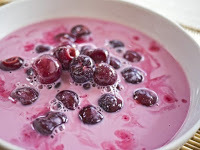 Pretty in Pink! LITHUANIAN COLD CHERRY SOUP
Pretty in Pink! LITHUANIAN COLD CHERRY SOUPYou can make this with blueberries instead of cherries, or I suppose you could do one of each, then carefully pour side by side in the bowl for a red white and blue kind of moment. I mention below that you can sub out the cinnamon for other experimental herbs. Rosemary? Cilantro? Basil? Experiment, because you know the rule: PLAY WITH YOUR FOOD!
1 lb. pitted cherries (Either morello or Bing will do)
1/2 tsp. salt
1 cinnamon stick (Or if you like, substitute a large sprig of rosemary. This will make it more savory, but it's an interesting combination of flavors, and you know the rule: PLAY WITH YOUR FOOD)
1 slice lemon
8 oz. sour cream (Yes, yogurt will work well if you prefer)
1-2 cups water (depending on the thickness of soup you prefer)
Put the cherries, water, cinnamon stick (or herb of your choosing. Really. Do PLAY With this) in a saucepan. Bring to a boil, reduce to a simmer and let it get all mingly for about 15 minutes.
While it's mingling, whisk the sour cream (or yogurt) with some of the juice from the saucepan.
Remove about half the contents of the saucepan and puree. Put it BACK in the pot, take off the heat, and add the sour cream mixture.
That's it. Enjoy!
Yes, you can buy The Amber on-line, or order it through your local bookstore. And you should.
Published on June 21, 2018 09:54
September 1, 2016
THE SPEED OF LIGHT
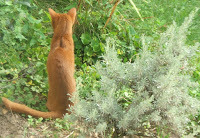 Chaco, Moving On
Chaco, Moving OnToday, a piece of light left my house. My cat, Chaco, an Abyssinian, who I firmly believe had the Cat Superpower of traveling at the speed of light, was too sick to go on. I mean it about that Superpower thing. There’s no other explanation for the way she would suddenly be present at, and shoot out of, any open door. For the way she figured out, two days after we got her home, how to pop the screen out of the window and dash away into the yard. I always warned people about her Superpower, but they never believed me until they saw it in action. My brother once spent a few hours chasing her through the woods because he didn’t take me seriously about it. My friend Debbie also experienced the shock of a cat who wasn’t at the door, then was outside, beyond her reach. My sister had it happen to her, and she stood at the back door with an open can of cat food, telling Chaco, “You have to come back inside, or I’ll slit my throat with this can top. Really. You’re too beautiful. Come back inside.” Traveling at the speed of light, which is around 11 million miles a minute, supposedly slows your aging. So the physicists say. But I think there must be more than one kind of speed of light, because it didn’t work for Chaco. Though she was only four, a few weeks ago she was diagnosed with terminal kidney disease, a genetic defect of her breed called renal amyloidosis . I gave her all the time I could, days when she still wanted to eat, and drink, and go outside to explore and stretch in the sun. When she stopped stretching and began instead to hunch into herself, when she stopped demanding to be let out, when she stopped being who she’d always been, I knew it was time to end her misery, and send her on her final escape. Light moves too swiftly into and out of our days. Light can't be clutched in the grasping human hand. Light is what we’re all made of, energy as well as matter, but we can’t any of us keep it as long as we want to. Chaco was one of the Great Cats of the universe. When I brought her home, she weighed all of 3 pounds, but quickly subdued the two Labrador retrievers in our house to her will. That’s about 200 pounds of dog, which must have been the equivalent of subduing Mack Trucks. Later, she patiently brought live mice to our dog Ziggy, and taught him how to hunt them, how to find them when they hid, how to pounce on them. As a result, my dog is one of the best mousers we’ve ever had.
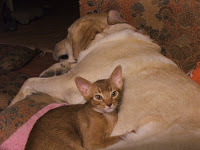 Chaco loves Ziggy She was the only cat I’ve had who insisted on taking walks with me and the dogs in the woods. She always kept pace with the rest of us, following me when I whistled to her. She herded our chickens away from the road, securing the perimeter like a border collie. She shot into the bedroom every morning to drink from the water glass I kept at the side of the bed, then stare out the window with Ziggy, the two of them nose to nose, joyful to see the world, ready to be out in it. She was a vigorous, happy, and healthy cat until a few weeks ago, when she started losing weight and peeing too much. I made an appointment with the vet to find out what was wrong, and the day that I took her to it, about a mile down our country road she popped out of her cat carrier, and opened the car window with her paw. Let me say that again: She opened the car window with her paw. I tried closing it on my side. She pressed harder on her side, keeping it open. I caught her just before she leaped out, and held her close to my chest for the rest of a mercifully short drive. Here is what I say about the speed of light. For us humans, it isn’t a physics problem to be solved. For us, it’s the swiftness of the days, the light entering the window in the morning, and leaving at night. When my father died, my mother said, “I had no idea my married life would go so fast. I just want him back.” This, after 35 years.
Chaco loves Ziggy She was the only cat I’ve had who insisted on taking walks with me and the dogs in the woods. She always kept pace with the rest of us, following me when I whistled to her. She herded our chickens away from the road, securing the perimeter like a border collie. She shot into the bedroom every morning to drink from the water glass I kept at the side of the bed, then stare out the window with Ziggy, the two of them nose to nose, joyful to see the world, ready to be out in it. She was a vigorous, happy, and healthy cat until a few weeks ago, when she started losing weight and peeing too much. I made an appointment with the vet to find out what was wrong, and the day that I took her to it, about a mile down our country road she popped out of her cat carrier, and opened the car window with her paw. Let me say that again: She opened the car window with her paw. I tried closing it on my side. She pressed harder on her side, keeping it open. I caught her just before she leaped out, and held her close to my chest for the rest of a mercifully short drive. Here is what I say about the speed of light. For us humans, it isn’t a physics problem to be solved. For us, it’s the swiftness of the days, the light entering the window in the morning, and leaving at night. When my father died, my mother said, “I had no idea my married life would go so fast. I just want him back.” This, after 35 years.
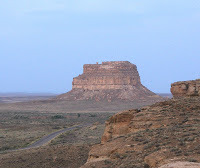 Sundagger Chaco was named after Chaco Canyon, a National Park in New Mexico I happen to love. She was the same color as the land there, and she was as fierce and wild and gentle and complicated as that land. Chaco Canyon is also a place that’s all about light. It's home to Sundagger, a spiral carved into the side of a butte that's the only marker tracking the noontime summer solstice, the winter solstice, and the minimum and maximum light of the moon. It was discovered not by a scientist or an archeologist, but by a woman photographer,
Anna Sofaer
, who happened to be hiking near it at the noontime solstice. She was struck by the beauty of it, because it marks time in the most beautiful way, with daggers of light that pierce the center of the spiral, or hold it empty of light. Some creatures we meet in the world, human and nonhuman, find the center of our spiral lives and pierce them with light. Then, they go away, holding us empty of light. In the Tzutujil Mayan language, the word for grief is the same as the word for praise. We praise what we grieve, and we are always aware that someday we will grieve what we praise. Because light keeps moving through the window, in and out, out and in. Chaco traveled through my life at the speed of light. And I want her back. Here is my praise, and my grief for a creature whose light was as big and beautiful as the land she was named for, my praise and grief for knowing that we’re all light, entering and leaving the room.
Sundagger Chaco was named after Chaco Canyon, a National Park in New Mexico I happen to love. She was the same color as the land there, and she was as fierce and wild and gentle and complicated as that land. Chaco Canyon is also a place that’s all about light. It's home to Sundagger, a spiral carved into the side of a butte that's the only marker tracking the noontime summer solstice, the winter solstice, and the minimum and maximum light of the moon. It was discovered not by a scientist or an archeologist, but by a woman photographer,
Anna Sofaer
, who happened to be hiking near it at the noontime solstice. She was struck by the beauty of it, because it marks time in the most beautiful way, with daggers of light that pierce the center of the spiral, or hold it empty of light. Some creatures we meet in the world, human and nonhuman, find the center of our spiral lives and pierce them with light. Then, they go away, holding us empty of light. In the Tzutujil Mayan language, the word for grief is the same as the word for praise. We praise what we grieve, and we are always aware that someday we will grieve what we praise. Because light keeps moving through the window, in and out, out and in. Chaco traveled through my life at the speed of light. And I want her back. Here is my praise, and my grief for a creature whose light was as big and beautiful as the land she was named for, my praise and grief for knowing that we’re all light, entering and leaving the room.
Where Everything Sings (For Chaco)
These gifts are sundagger and time,space held empty of light.The stone bones of earth have brought up bloodbeneath the skin of my thighs and if I could read sign,I would know what this pattern says besideswelcome home.
To know we are only light, piercing the circle of time.To know we are only light dancing through the circle of time.
A forgotten woman wandered here.Anna Sofaer seeking art on the side of a neglected butte,finding science enough to make the professors howl.The ancient ones called her, speaking her name becausewomen's names are dismissed like the oldest wisdom, the oldest dreams,by those who don't know art in their bones,the way these old stones do.
To know we are light piercing the circle of time.To know we live where everything sings and fire still has a story to tell.To know we are daggers of light.
The sun rakes my back with eager fire and I love the blood left there,and my thighs, mesa bitten.Wind will sing this white woman's heart to dreams tonight.This is the generosity of a spare, high land,
and can there ever be enough gratitude for beauty.
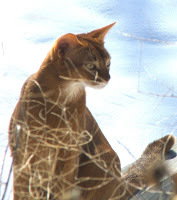
To see more of Chaco's photos, and those of her friends, you can visit me on Facebook .
SaveSave
Published on September 01, 2016 10:55
July 8, 2016
EYE ON THE FIREFLIES
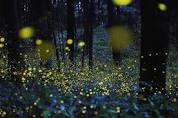 Firefly Love
Firefly LoveIt’s been a terrible month, with mass shootings, police killings and police killed, a congress that refuses to deal with our gun violence problems in any way at all - even refusing to fund research on the issue as they continue to protect their own self-interest and greed by making sure the NRA funds their government post. Recently my husband woke up saying that for the first time in his life he was ashamed to be American, and if he was younger, he’d move to Canada, or maybe Costa Rica, which is warmer and has some interesting birds. I know how he feels. Something is happening in our nation which is frankly terrifying, and which reminds me of what I call The Killing Times in my futuristic novel, The Fear Principle . In this fictional account, the people of America start mass urban killings out of fear, out of greed, out of a desperation that’s invaded their lives and their spirits. I think as a nation, we’re feeling desperation of both body and soul. There’s too much power and money at the top end, not enough to go around for the rest of us. There’s a massive backlash against recent moves to be more inclusive in our laws, a stand against rights for women, for blacks, for hispanics, for the LBGT population. Personally, just so you know, I stand with Nobel Prize winner Eli Weisel, recently deceased, as he spoke to the HRC in 1989. He said, “Hate is contagious. [those who hate] are committing sins. Sins against society. Sins against humanity, and against creation as such.” Against creation as such. And that’s my answer to my husband for why we should stay here, in spite of our shame about our government, which is profound right now. Our country is bigger than the government. It’s composed of the land, and the land itself is most beautiful and worthy of our service, our sacrifice, our protection. Last night, partly out of sorrow for recent killings, partly because of what my husband said, and partly because it’s firefly season, I stayed up late and went out walking in the middle of the night. I went out to see the fireflies, which dot our fields with a light show beyond anything the fireworks of July 4th could create. In fact, those fireworks are a poor imitation of what’s available naturally, because fireworks sound like bombs going off, and remind too many people of past experience with war, disturb too many dogs, cats, and wild animals.
 More Firefly Love The fireflies create their magic in silence. They don’t need to scream, or engage in violence to own power. The nature of their being is powerful enough to compel attention, respect, and love. They speak in the still, small voice of the soul, which never lies. Their light is a reflection of the star-studded sky, reminding us that we are in fact connected to the largeness of the universe. Any of you out there who has ever contemplated a field full of fireflies on a summer’s night knows exactly what I mean. I walked among the fireflies last night, and knew I had to stay here. We have to protect the best part of our country - our love of freedom for all, our need to repair damages done to those who lived here before us and taught us the best lessons, our need to screw up our courage and our love and work for love rather than letting this most glorious land be ruled by fear and greed. Really, folks. We have work to do. There are people and lands to protect, fireflies to love. Now is a time to do as the singing duo Magpie says, and Live Like a Prayer. Now is the time to remember who we really are - a people who came here to escape oppression, and who will not, will not, will not, use oppression of others just because we’re frightened. There are many kinds of light in the world. The fireflies are just one of them. Recently I saw a video of how a biker’s group called
BACA (Bikers Against Child Abuse)
gather around abused children to support them in their fear, to protect them against further abuse. That’s the best use of power. These folks say they’re willing to take a bullet for the kids they protect, and they’re in it for life. To be willing to live and die for what you believe in, rather than reaching for personal power and self-interest is what matters most. We are here to serve and protect, at risk of our own lives and sanity. We are here to learn love, and live love, in all ways. If you aren’t asking yourself what love requires, you’re on the wrong track. Let me repeat that. If you’re not discerning the difference between fear, greed, and love, you’ve abrogated your human rights. Yeah. I mean that. So let’s protest the killing of black men by cops. Let’s protest the killing of cops by guys who carry semi-automatic assault rifles. Let’s protest the control of the NRA over congress. Let’s keep on moving forward toward love, which is the only value worth keeping.
More Firefly Love The fireflies create their magic in silence. They don’t need to scream, or engage in violence to own power. The nature of their being is powerful enough to compel attention, respect, and love. They speak in the still, small voice of the soul, which never lies. Their light is a reflection of the star-studded sky, reminding us that we are in fact connected to the largeness of the universe. Any of you out there who has ever contemplated a field full of fireflies on a summer’s night knows exactly what I mean. I walked among the fireflies last night, and knew I had to stay here. We have to protect the best part of our country - our love of freedom for all, our need to repair damages done to those who lived here before us and taught us the best lessons, our need to screw up our courage and our love and work for love rather than letting this most glorious land be ruled by fear and greed. Really, folks. We have work to do. There are people and lands to protect, fireflies to love. Now is a time to do as the singing duo Magpie says, and Live Like a Prayer. Now is the time to remember who we really are - a people who came here to escape oppression, and who will not, will not, will not, use oppression of others just because we’re frightened. There are many kinds of light in the world. The fireflies are just one of them. Recently I saw a video of how a biker’s group called
BACA (Bikers Against Child Abuse)
gather around abused children to support them in their fear, to protect them against further abuse. That’s the best use of power. These folks say they’re willing to take a bullet for the kids they protect, and they’re in it for life. To be willing to live and die for what you believe in, rather than reaching for personal power and self-interest is what matters most. We are here to serve and protect, at risk of our own lives and sanity. We are here to learn love, and live love, in all ways. If you aren’t asking yourself what love requires, you’re on the wrong track. Let me repeat that. If you’re not discerning the difference between fear, greed, and love, you’ve abrogated your human rights. Yeah. I mean that. So let’s protest the killing of black men by cops. Let’s protest the killing of cops by guys who carry semi-automatic assault rifles. Let’s protest the control of the NRA over congress. Let’s keep on moving forward toward love, which is the only value worth keeping. Let’s keep our eyes on the prize, and on the fireflies, who teach us almost all we need to know.
My fantasy novel Children of the Land, which is all about love, can be found on amazon. And here's a loving and lovely recipe, to feed your body as well as your soul.
CHAMPAGNE AND ROSE PETAL SORBET
This has some of my favorite solstice ingredients in it: Good spirits, flowers, and a touch of honey from Saule’s bees. Share it generously, just as Saule shares her light.
1 1/2 cups champagne or sparkling wine 1 cup white granulated sugar 1 tbsp. honey 1/2 cup fresh squeezed lemon juice About half a teaspoon of salt 1 1/2 cups water, or a combination of water and grapefruit juice 1 cup rose petals, chopped (I use wild roses and the ones from our garden, which don’t get sprayed with pesticides. Make sure yours are UNSPRAYED!)
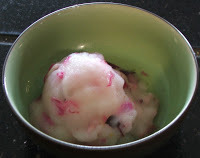 Pretty Solstice Fairy Food 1 tbsp rose water if you want more intense rose flavor. Or, you can add rose petal spread or jam to the mix once it’s in your ice cream machine. If you add it before, just be aware it will change the color.
Pretty Solstice Fairy Food 1 tbsp rose water if you want more intense rose flavor. Or, you can add rose petal spread or jam to the mix once it’s in your ice cream machine. If you add it before, just be aware it will change the color.Put champagne, sugar, and honey in a sauce pan and bring it to a vigorous boil, like it’s one the sun. Let the sugar dissolve completely, then remove it from heat and pour it into a bowl. Add the lemon juice and salt and water. If you’re adding rosewater, do so now.
Put the bowl in the refrigerator or freezer to chill like there is no sun.
When the ingredients are really really cold, brrr, like they live in Nunavut Territory, put them in your ice cream maker, according to its directions. As it begins to turn about, add the rose petals. Try different colors, different kinds, because you know the rule: PLAY WITH YOUR FLOWER FOOD! Let the machine do its thing while you decide what to do with the rest of the champagne. Drinking it is an option. If you drink enough, you’ll enjoy watching the transformation in your ice cream maker, and how PRETTY it is.
Published on July 08, 2016 14:01
July 4, 2016
STARS AND STREAKS
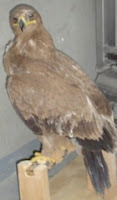 A Star
A StarSo it’s July 4th, and I woke up thinking about bison. I did this mostly because my husband bought some ground bison for burgers, and I wanted to explain to him that mostly I use it for chili. But as I was lying in bed thinking about that, my mind wandered to images I’ve seen of how early westen settlers rode the plains, killing millions for their hides alone, and leaving the carcasses to rot. Historians estimate that there were perhaps 30-60 million American bison roaming the land of the free and the home of the brave in the mid 1800s. By the 1880s, around 200 living in Yellowstone park were among the few that remained. European settlers of the United states also managed to kill off the passenger pigeon in short order, and again, this was a matter of commerce rather than food. We also killed off the Carolina Parrot, which was easy because if one was wounded, the others in the flock would gather around it, making them easy prey for human hunters who sold their feathers to hatmakers. I know. This isn’t very cheery stuff for a fine summer day, and a holiday at that. However, what it all lead to in my mind, was thinking about the Stars and Stripes of the American Flag. As a country, as a nation with a culture of its own, it seems to me we are made of stars, and of stripes - or streaks, if you will. We have stars, and plenty of them. I’m not talking about the ones in Hollywood, either. I’m talking about true lights who have shone on us in dark times, and led us to better days. Rachel Carson, for instance, who wrote Silent Spring, which was about the devastation the pesticide DDT was wreaking in the bird world. Because of her, there are now hummingbirds, eagles, hawks and turkeys in our world. We’ve got heroes of abolition and civil rights such as Martin Luther King, Harriet Tubman, and heroes of women’s suffrage and equality such as Sojourner Truth, Susan B. Anthony, and yes, Gloria Steinem. We've got plenty of true heroes, who lived courageously, choosing love over fear every time. That, to me, is the sign of a true hero. In my own life, I’ve known quite a few folks I’d call stars. For instance,my Italian grandmother, who adopted America so thoroughly that she marched with the Suffragettes to get the vote. Okay, she still thought her food was better than most local stuff, and I’d agree with her on that, but she did work, she did vote, she did participate fully. And there was this Navy SEAL, and a former Army Ranger, two guys who took care of a war-wounded eagle while they were stationed in Afghanistan. They and the veterinarian, Dr. Eileen Jenkins, who went out of their way to show compassion in a war zone, were stars in my darkest night. I was privileged to help them get Eagle Mitch here safely. I’m sure you have plenty of stars of your own, and today is a good day to name them, and honor them. But there are also streaks. Streaks of greed, streaks of mean-spiritedness, streaks of folly and purposeless destruction. We see those streaks in the Trail of Tears, in the genocide of those who lived here first, in the senseless slaughter of too many bison for very little return. We see more recently in mass shootings, in the political rhetoric of xenophobia, racism, and misogyny. We also see it in the ways large corporate entities hold us back from acting against climate change, and from having sensible discussions about our gun laws. We've also got streaks of fear, often about all the wrong things. And having known both love and fear myself, I'd like to ask all those who make decisions based on fear if they've tried making them from love instead. Personally, I can attest that love isn't only the right thing, it also feels a helluva lot better than fear. We are a nation of stars and streaks. This fourth of July, as I contemplate who we’ve become as a people, as I contemplate the choices before us and how crucial it will be in the coming months to make good ones, I can only hope that the light of the stars will change the color of our stripes.
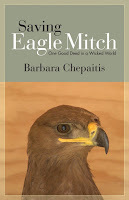 My nonfiction book,
Saving Eagle Mitch: One Good Deed in a Wicked World,
is available at
SUNY Press
, and
Amazon
. And here’s a recipe to help feed you and the stars in your life.
My nonfiction book,
Saving Eagle Mitch: One Good Deed in a Wicked World,
is available at
SUNY Press
, and
Amazon
. And here’s a recipe to help feed you and the stars in your life.COOL HEAT CEVICHE
This is a no-cook dish, lovely for hot summer days. The scallops ‘cook’ chemically in the lime juice. Since the scallops have to ‘simmer’ all night, this is also a do-ahead. My recipe will serve 2 or three people, so if you’re serving more, you do the math. NOTE: One reason I love this as a solstice dish is because the limes cook the scallops, but the sun cooked the limes. Yay! Go, Sun!
1/2 pound REALLY FRESH scallops (that’s IMPORTANT! I get mine at our local fishmonger, Fin , where all the fish is sushi grade.)
The juice of 4 limes, or enough lime juice to put the scallops under liquid
1/4 cup finely chopped cilantro (If your genes make cilantro taste soapy, substitute parsley because you know the rule: PLAY WITH YOUR FOOD!
1/2 cup diced mango1/2 cup diced tomato1/4 cup finely chopped scallionsSalt and pepper to tasteTabasco sauce to taste (That’s the heat part. Use as much or as little as you like. If you prefer, you can sub out cayenne pepper.)
SaveSave
Published on July 04, 2016 12:15
June 17, 2016
AMBER SUN
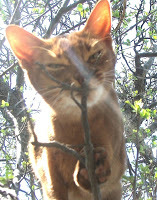 Solstice Sun Kitty
Solstice Sun KittyWe're approaching the summer solstice, and to celebrate, I'm having a Solstice Sale of my novel, THE AMBER. You can go right to amazon to take advantage of it, or check out my FB invite.
In case you don't know, it's both historical fiction, and a paranormal, with quite a bit of romance because, you know, it's summer. And because when I cook, whether it's food or writing, I like a complex layer of flavoring. As you know, I like to play with my food, whether it's food of the body or the soul.
I mean, honestly, our personal history matters, and how that personal history is influenced by larger world events matters, too. Ask any immigrant and they'll say yes. Ask my parents, their parents, who all came here from 'the old country' because world events encouraged them to do so.
And of course, we all have, um, interesting experiences. I mean, ghost things, strange events we can't explain that either lead us right where we need to go, or perhaps where we don't want to go, but should anyway. You know what I mean.
Added to that, romance. Yes. What's the world without it? Because, really, love is our best teacher and our best guide. When in doubt, ask yourself, 'what does love require?'
Romance is only one aspect of love, but in The Amber, it's a crucial one. As it often is.
For those who want a preview before the decide (and who can blame you?), I've pasted an excerpt of the first chapter below. And if you like, I'd be glad to send you a PDF of the first few chapters. Just find me on FB, or leave me a request in the comment section.
Meantime, enjoy the sun. The liquid amber light. Your own history. The history of the world. and some romance. Here's a little drink to help you enjoy it all even more:
CREAMSICLE COCKTAIL
This is simple, because who wants difficult in the summertime?
 Not brave but that's okayGet a pretty glass of your choice (martini glass if you're brave, wine glass if you're less brave, jelly jar if you're not at all brave.)
Not brave but that's okayGet a pretty glass of your choice (martini glass if you're brave, wine glass if you're less brave, jelly jar if you're not at all brave.)Put about half an inch of crushed ice (or a few ice cubes) in the bottom
Fill the container 3/4 full with orange soda
Fill the rest with whipped cream flavored vodka, to taste.
You can add some whipped cream on top if you like, or a cherry because you know the rule: PLAY WITH YOUR FOOD. And your drinks. And your summer.
Sit back, sip, read what's below and enjoy!
Chapter One
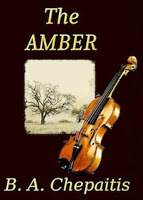 Early 21st Century - Upstate NY Stacey V. moved her pencil on the notepad she held on her lap. For all anyone could tell, she was taking notes on the meeting, but since her presentation was over and the bosses droned on, she was doodling. Jonathan Seele, senior partner in Accent Marketing, exuded confidence and positive energy as he talked about profit margins and teamwork. He focused the red dot of his laser pen on the Power Point graphs at the front of the room. Stacey, who’d heard it all before, kept doodling, until a storm-tossed ocean grew under her pen, with two men on horseback rearing back from its waves. She wondered if someone left a radio on, because she heard a violin playing somewhere. Sibelius, Violin concerto, the first movement. The waves on her notepad curled with increasing complexity, the faces of the men on horseback taking rugged shape. When Jonathan was done, he turned the meeting over to junior partner Ed Horn, who said the same thing with even more confidence. Stacey smiled at the right moments, and continued to draw in time with the music, adding the face of a woman who was being pulled into the waves. She had no idea where the images came from. Like most of her drawings, they seemed to live in her hands, emerging beyond her volition. She continued to draw, until Horn said the magic words. “That’s it, folks. We’re done. And we can still make Happy Hour.” The men and women of Accent Marketing sighed with contentment and rose from the gleaming conference table. A few who had agendas to push made their way to Jonathan. The others began to pack up and head out. Stacey did the same. The meeting had gone well for her. They’d hammered out the busline proposal, a big account that raised a lot of competitive hackles, and no one bit or scratched. They’d divided the Syrius Restaurant budget between air, print, and internet, and everyoneresponded with enthusiasm to Stacey’s graphics for the campaign. Grant clearly appreciated her support for his Mercy Hospital copy, because he was the first to applaud when she announced she’d landed the upstate I Love NY account. Laura had made a cattie remark about her expertise with liquid sales – meaning she’d buy as many drinks as necessary to push a potential client into submission – but she didn’t care. Grant admired that skill in her, and he was more fun than Laura. As she pushed herself back from the conference table, secure and sleek as any woman contending for partner in the firm, he turned a glance to her. She ran a hand through her long honey hair, stood and moved to him. “You heading to Janus?” he asked. That was the favorite watering hole for young executives on a Thursday evening. Normally, her answer would be yes. Tonight, she had other obligations. “I wish I could. I’m house-sitting for my sister. Out in the country. I have to walk the dog, feed the cat.” “Ouch,” he said. “It’s not that bad, if you like peepers.” He frowned. “I thought those were only sold at Easter.” “Not Peeps. Peepers. The frogs?” “Oh. Frogs. Right. Did you want company? Besides the peepers,” he asked. She heard his reluctance, and figured it stemmed either from his distaste for anything in nature beyond sushi, or his recent interest in the new copywriter, Erin, who was blonde, thin, and had fantastic cleavage. She tried to work up some feeling about that, and found she couldn’t. Their commitment to not committing was her idea. “I won’t ask you to drive up those roads,” she said. “Go to Janus and have a drink for me.” Grant smiled. “You’re a good woman, Stace,” he said. “So I’ve been told.” She looked around. “Who’s got a radio on?” “What?” “I still hear that violin. Or is it singing?” Grant patted her shoulder. “Maybe you need quiet time. I don’t hear a thing.”
Early 21st Century - Upstate NY Stacey V. moved her pencil on the notepad she held on her lap. For all anyone could tell, she was taking notes on the meeting, but since her presentation was over and the bosses droned on, she was doodling. Jonathan Seele, senior partner in Accent Marketing, exuded confidence and positive energy as he talked about profit margins and teamwork. He focused the red dot of his laser pen on the Power Point graphs at the front of the room. Stacey, who’d heard it all before, kept doodling, until a storm-tossed ocean grew under her pen, with two men on horseback rearing back from its waves. She wondered if someone left a radio on, because she heard a violin playing somewhere. Sibelius, Violin concerto, the first movement. The waves on her notepad curled with increasing complexity, the faces of the men on horseback taking rugged shape. When Jonathan was done, he turned the meeting over to junior partner Ed Horn, who said the same thing with even more confidence. Stacey smiled at the right moments, and continued to draw in time with the music, adding the face of a woman who was being pulled into the waves. She had no idea where the images came from. Like most of her drawings, they seemed to live in her hands, emerging beyond her volition. She continued to draw, until Horn said the magic words. “That’s it, folks. We’re done. And we can still make Happy Hour.” The men and women of Accent Marketing sighed with contentment and rose from the gleaming conference table. A few who had agendas to push made their way to Jonathan. The others began to pack up and head out. Stacey did the same. The meeting had gone well for her. They’d hammered out the busline proposal, a big account that raised a lot of competitive hackles, and no one bit or scratched. They’d divided the Syrius Restaurant budget between air, print, and internet, and everyoneresponded with enthusiasm to Stacey’s graphics for the campaign. Grant clearly appreciated her support for his Mercy Hospital copy, because he was the first to applaud when she announced she’d landed the upstate I Love NY account. Laura had made a cattie remark about her expertise with liquid sales – meaning she’d buy as many drinks as necessary to push a potential client into submission – but she didn’t care. Grant admired that skill in her, and he was more fun than Laura. As she pushed herself back from the conference table, secure and sleek as any woman contending for partner in the firm, he turned a glance to her. She ran a hand through her long honey hair, stood and moved to him. “You heading to Janus?” he asked. That was the favorite watering hole for young executives on a Thursday evening. Normally, her answer would be yes. Tonight, she had other obligations. “I wish I could. I’m house-sitting for my sister. Out in the country. I have to walk the dog, feed the cat.” “Ouch,” he said. “It’s not that bad, if you like peepers.” He frowned. “I thought those were only sold at Easter.” “Not Peeps. Peepers. The frogs?” “Oh. Frogs. Right. Did you want company? Besides the peepers,” he asked. She heard his reluctance, and figured it stemmed either from his distaste for anything in nature beyond sushi, or his recent interest in the new copywriter, Erin, who was blonde, thin, and had fantastic cleavage. She tried to work up some feeling about that, and found she couldn’t. Their commitment to not committing was her idea. “I won’t ask you to drive up those roads,” she said. “Go to Janus and have a drink for me.” Grant smiled. “You’re a good woman, Stace,” he said. “So I’ve been told.” She looked around. “Who’s got a radio on?” “What?” “I still hear that violin. Or is it singing?” Grant patted her shoulder. “Maybe you need quiet time. I don’t hear a thing.”When he left, absorbed in the general milling, she heaved a sigh of relief. Grant was California beach-boy good looking, and he was fun, but she was tired, and didn’t relish the thought of dealing with him and a Labrador retriever. Though she’d never admit it to anyone in the room, she looked forward to the time alone, and the peepers. She left the office with a briefcase full of accounts to go over, got in her car and drove away from the city where she worked, the capital of New York State. It wasn’t a hopping town, but there was government money here, and it was close to New York City and Boston. Since Accent had offices in both those cities, she might make her way to either one someday. In the meantime, she avoided the cutthroat competition of Madison Avenue, and appreciated the reasonable housing costs here, which allowed her to buy her own small house at the age of 28. Part of the money for that came from her parents’ will, split between her and her brother and sister when both mother and father were killed in a car accident three years ago. Martha built a house in the country with her share, and Vince – well, they weren’t sure what he did with his. Drank it, Martha said. Stacey said no. At least he got a new car. She didn’t tell Martha what he said about their parents being worth more dead than alive. That was just bitterness, and later he admitted he meant it only about their father, really. For the most part. Fifteen minutes west of downtown the city dropped away, and Stacey drove a road that had more cows than people. She took the turn up the hill to her sister’s house and anticipated the upcoming thrill. She wasn’t disappointed. As she crested the rise, the land spread itself out in front of her, hills and hollows illumined by the westward dropping sun. Rolling green of deep summer, grass long and soft in the fields and trees burgeoning with emerald leaves dripping sweet golden light. She sighed. Though she was now an account exec, pushing her way toward partner, she’d started as a graphic artist, and she still appreciated a good visual. She’d thought of trying to paint this view, but wasn’t sure how. As she considered possibilities, sun glare temporarily obscured all vision. She had a flash image of a startled face behind the steering wheel of a car, driving into a beautiful and blinding sunset. It would be an interesting task in perspective, light and pain. Maybe she’d make a sketch tonight, she thought, but then she remembered the I Love NY account. She had to work on that. Work paid her bills, art did not. Maybe when she retired, she’d paint more. For now, she had a life to live. She pulled into her sister’s driveway, turned off the car and listened for a minute. The high call of tiny tree toads and peepers filled the air, underscored with the bullfrog’s bass notes. She’d once found a tree toad on one of her sister’s tomato plants. It was tiny as her thumbnail, its translucent flesh-colored skin veined in bright red. She’d been amazed that something so small could produce such a large sound. That was another painting she hoped to make someday. She got out of the car, lugged her stuff onto the front porch and looked to the west. It was late June - the solstice in fact - and the sun had hours of light left to shed. Time enough to take the dog for a good long walk in the woods. She dug the key from her pocket and went inside. Tamsa, a black lab who was sleek and happy as an otter, stood at the entrance to the kitchen, a ball in her mouth, her butt wiggling a mile a minute. Her name was Lithuanian for dark, a word they’d learned from their Lithuanian immigrant grandmother. Chaos, the family black cat, wandered over and wrapped his tail around Stacey’s leg, a request for some petting. “Hey, you two,” Stacey said. “Happy to see me?” Tamsa made the small whine that meant either great joy, or an urgent need to find a patch of grass. “Yeah,” Stacey said. “Just gimme a minute.” She put down her bags and glanced at the note Martha had left on the kitchen counter. It gave detailed instructions on walking, feeding, and taking Tamsa out to pee, along with who to call if the water turned brown, what to do if she smelled gas, the best way to get Tamsa back if she ran away, what canned and dry food to give Chaos, how much to feed the goldfish and hamster that belonged to Stacey’s niece, Alicia, and six separate emergency numbers to reach her. At the bottom of the note was a picture Alicia drew of what she expected from their trip: A fairy with crooked pink wings, and sparkles sprinkled on top. Martha and her husband rarely went on vacation, but they’d promised Alicia a trip to Disney World as soon as school was out. Martha, a high school English teacher who liked everything safe and predictable, prepared for it rather grimly, as if she was going to a Siberian prison camp. Stacey encouraged her to be more adventurous, but on the other hand, she appreciated the stability of her sister’s life. They made up for each other’s deficits, the way sisters often do, she thought. Stacey was the independent single woman, climbing the ladder of success. Martha, six years her senior, kept the home fires burning. They got a vicarious charge from each other’s lives, and managed not to be jealous except now and then. Tamsa nudged her elbow with a wet nose. “Okay,” Stacey said. “Let’s walk. Then we’ll see what kind of wine your human has around the place.” She tossed some catnip to Chaos, who rolled onto it and was content. She put her briefcase and bag in the spare room, and changed into jeans, t-shirt and sneakers. She stuck one of Alicia’s baseball caps on her head to prevent tick infestation, which Martha said was bad this year. In spite of that, she was looking forward to the walk. The evening was warm and fine, and there were hundreds of acres of woods behind the house to roam in. She tucked her pants into her socks, sprayed herself with organic tick repellant, and set out, Tamsa leaping with doggie joy. Strolls here were strictly off-leash, and Tamsa scampered ahead, tracking good sniffs while Stacey walked at a leisurely pace, stopping to peer at interesting stones or fallen trees pocked by woodpeckers, thinking of other paintings she might make someday. She followed an open trail across the meadows behind the neighbor’s house, which led to a path into woods where tall fir trees shadowed the ground, and patches of moss created a quilt of varied greens under her feet. They took their time, arriving at the woods just as the sun sank to the western horizon. Once within that shadowed space they climbed a steep hill into the heart of the trees. Stacey stopped here to catch her breath. She needed more time at the gym and less at Janus, she thought, if that left her winded. Tamsa snuffled around, and Stacey bent to touch a patch of light green moss that formed a small pillow at the base of a pine tree. When she did, her eye caught the colors black and yellow. She stopped, squatted down, looked more closely. Nestled in the moss was a tiny toad, its rough skin black and deep brown, with bright yellow outlining its mouth. It was narrow in the jaw, more elegant than she thought a toad could be. She thought of her grandmother, who had kept a toad in her house one winter. It had hopped into her cellar after the ground was frozen, and she’d built a shelter for it, filling an old glass fishbowl with dirt from the garden shop, letting the toad burrow into it and rest there through the cold months. “It’s a blessing to have a toad in the house,” she told Stacey. “A toad or the zaltys snake. If you ever find one, take good care of it. If you see a dead zaltys in a field, bury it. The sight of a dead zaltys would make the sun cry.” That was just one of many old Lithuanian beliefs their grandmother taught them. She never explained their origin, but when she spoke of them her voice was solemn and her blue eyes piercing, so Stacey knew it was important. To this day, she appreciated toads and snakes. She was in grade school when her grandmother died at the age of 65, worn out from war and hardship and cancer. Still, she’d left vivid memories behind. She told stories of bees and trees, devils and creatures she called veles, ghost-like beings, sometimes devilish beings, she said would chase Stacey. She told stories of her own grandmother, whose name and slanted silver-grey eyes and high cheekbones Stacey had inherited. And she told stories of toads. Now Stacey touched this small specimen on the head as a blessing of her own. It puffed its throat at her and hopped away toward the largest tree at the center of the hill. She followed, and saw it disappear under the roots. She squatted down to see where it went, images of glittering fairy houses appearing in her mind. In reality, what she saw was loamy earth, but what she heard wasn’t peepers or toads. A new sound entered the woods. One that didn’t belong there. “Violin,” she murmured, picking her head up and listening. A violin playing the Sibelius, just like she’d heard earlier. And singing. A woman’s clear, high voice. She couldn’t quite make sense of it because it was muted, as if it reached her from far away. Was it a radio on in a house nearby? If so, it was blasting. She’d walked pretty far into the woods. She pushed herself to stand, hoping to hear better. She tipped slightly on the uneven ground and pressed against the tree to rebalance. Her hand felt thick sap. She saw its congealed stream on the bark, golden brown and red. Then, suddenly, she didn’t see a thing. “What the hell?” she asked. The sun had fallen quickly away from the earth, leaving her in velvety thick night. Jesus, she thought, it gets dark quick here. She sat down heavily, uncertain what to do. “Tamsa?” she asked, but as in a dream, her voice wouldn’t raise above a whisper. “Tamsa?” She tried again. No response. She blinked around. Fireflies whizzed by, silent and frantic in their mating dance. Far away, coyotes howled, their voices punctuating the fireflies’ dance. Had she imagined she liked the country? She wished fervently for streetlights, a bar, a cop - anything that said city living. She put her hand to the tree again, a point of reference in the darkness, and her finger dipped into something almost liquid, too thin for sap. Without thinking, she put her hand to her mouth and tasted it. “Honey,” she said. Fireflies zipped past, one lone honeybee trailing in the wake of their light. She thought that was odd. Bees slept at night, didn’t they? Had she hit a hive? She hoped not. She was allergic. She tried to make sense of it and failed. She dropped her hand to her side and felt long grass beneath it, soft as a woman’s hair. Somewhere, someone was singing and a violin was playing Sibelius. And she heard another voice, male, speaking words she didn’t understand. “Mano,” he breathed out. “Jus mano.” She turned to the sound. A few yards away she saw an outline of a male form, silhouette within shadow. He gestured, beckoning to her. He was hungry for her. His hunger was an animal stalking her, terrifying and beautiful. She thought of all the TV shows she’d ever seen about serial killers. Quaking with fear, she tried to run, but her foot caught on a tree root and she fell hard, landing face down on the earth. Night reeled around her, dragging her into its folds.
Then, only darkness, thick with ancient dreams.
SaveSave
Published on June 17, 2016 13:14
April 11, 2016
TAPPING TREES, DRINKING LIGHT
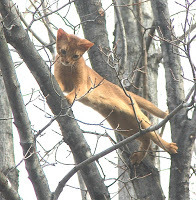 Chaco Loves All Trees April is a month that includes taxes, fools, the occasional snowstorm, and this year the New York Primary. We’ll leave the primary alone. As T.S. Eliot said, April is the cruelest month of all, so we don’t need that added difficulty. It’s also the month that includes Earth Day, and for many, a time to contemplate our relationship to the planet and its nonhuman creatures. Since I’m half Lithuanian, some of those creatures include trees. And so I decided to try a tradition from that country, and tap a birch tree for its sap. Yes. I said birch, not maple. It’s something done a lot in the Baltic regions and Russia, and even Alaska. The sap or water of the birch has a lower sugar content than Maple, so it’s not as commonly used to make syrup. But it has lots of minerals that are good for you, and from what I’ve read makes a fine wine as well as syrup. However, I didn’t really want any of that. I just wanted to taste a birch tree. Every day I walk my dogs in the woods behind my house, where we pass groves of birches, groves of pine trees, groves of fir trees and even some venerable old oaks. I understand that trees are life giving and life sustaining, and for that they have my admiration and my gratitude. Then again, I’m of Lithuanian heritage, and so I come by it honestly. For Lithuanians, forests were and are sacred places, with some venerable groves being even more sacred than others. I track some of that ancestral spiritual history, that complex relationship with trees and bees, in my novel,
The Amber
, which also tells the difficulty of a Lithuanian-American woman trying to figure out an affair with a man who sold his soul to the devil. In one chapter, I tell my version of a true story about a Bishop who wanted an oak tree cut down because the Lithuanian “pagans” continued to talk to it, give it gifts, and so on. Idolatry, he said, and the tree must go. But nobody would cut it down, not even for him. As I say in the novel:
Chaco Loves All Trees April is a month that includes taxes, fools, the occasional snowstorm, and this year the New York Primary. We’ll leave the primary alone. As T.S. Eliot said, April is the cruelest month of all, so we don’t need that added difficulty. It’s also the month that includes Earth Day, and for many, a time to contemplate our relationship to the planet and its nonhuman creatures. Since I’m half Lithuanian, some of those creatures include trees. And so I decided to try a tradition from that country, and tap a birch tree for its sap. Yes. I said birch, not maple. It’s something done a lot in the Baltic regions and Russia, and even Alaska. The sap or water of the birch has a lower sugar content than Maple, so it’s not as commonly used to make syrup. But it has lots of minerals that are good for you, and from what I’ve read makes a fine wine as well as syrup. However, I didn’t really want any of that. I just wanted to taste a birch tree. Every day I walk my dogs in the woods behind my house, where we pass groves of birches, groves of pine trees, groves of fir trees and even some venerable old oaks. I understand that trees are life giving and life sustaining, and for that they have my admiration and my gratitude. Then again, I’m of Lithuanian heritage, and so I come by it honestly. For Lithuanians, forests were and are sacred places, with some venerable groves being even more sacred than others. I track some of that ancestral spiritual history, that complex relationship with trees and bees, in my novel,
The Amber
, which also tells the difficulty of a Lithuanian-American woman trying to figure out an affair with a man who sold his soul to the devil. In one chapter, I tell my version of a true story about a Bishop who wanted an oak tree cut down because the Lithuanian “pagans” continued to talk to it, give it gifts, and so on. Idolatry, he said, and the tree must go. But nobody would cut it down, not even for him. As I say in the novel:
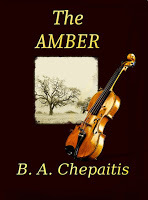 “The Bishop served the god of princes, of the wealthy and the learned. Yet, what he wanted was wrong. How could he kill the tree? Its complex branches and thick trunk were home to so many. Honeybees lived there, in a hive high up, near where lightning had sheared off its back, leaving an open hole. Perkunas came to scorch it, but the bees themselves protected it from his wrath. And birds nested in it, singing morning and night, bringing messages her mother was teaching her to understand. Somehow, the Bishop and his priests didn’t understand any of that, though she wasn’t sure why.”
“The Bishop served the god of princes, of the wealthy and the learned. Yet, what he wanted was wrong. How could he kill the tree? Its complex branches and thick trunk were home to so many. Honeybees lived there, in a hive high up, near where lightning had sheared off its back, leaving an open hole. Perkunas came to scorch it, but the bees themselves protected it from his wrath. And birds nested in it, singing morning and night, bringing messages her mother was teaching her to understand. Somehow, the Bishop and his priests didn’t understand any of that, though she wasn’t sure why.” In ancient Lithuanian practice, trees were home to the honeybees, who taught the best model of community to the people. They were also conduits between this world and the other world, a place the dead can inhabit, a place the living can go to to speak with their dead. A Lithuanian death chant proclaims, “The Linden will be your mother, and the Oak your father. The Birch is your brother and the spruce your sister.” That respect continued well after Catholicism became the norm. In the 16th century, LIthuanian nuns wrote a prayer exhorting people: “When someone dies, plant a tree. When someone is born, plant a tree. If you build a house, plant a tree. Your prayers will be heard by giving thanks to the trees.” Of course, beyond any divine attributes you might give to trees, it’s a scientific fact that we’re all in constant relationship with them, on a fundamental level. As my character Stacey notes in The Amber , “We breathe in what they breathe out, and they breathe in our breath.” That’s just how it is. And so, as a way of honoring my relationship with the trees, I wanted to get a little closer, and taste them. I put the tap in with care, and will close it when I’m done. I won’t tap that particular tree again. When I found my jug full of birch water, I thanked it. I took the water home, and though I know you’re supposed to boil it briefly to avoid bacteria, I took a chance on a few sips fresh from the source. Though it’s mostly water, it’s also mildly sweet, complex with something you won’t taste in plain water. I asked myself what it tasted like. I answered myself: It tastes like light. Now, you may see this as quirky imaginings of a fiction writer, but I’m not making that up. What I thought of was drinking light. That thought created a more complex relationship between me and the trees I walk under every day. Though intellectually I’m always aware of what they do to keep me alive, tasting birch water made the connection physical and immediate. Before, I knew. Now, I taste and understand. We share breath. We share water. We share light.
This April, after your taxes are done and the circus has left town, take some time to connect your knowledge with your understanding. Talk with a tree, and listen to it. Plant a tomato, and taste the earth it grows in. Admire a dandelion or a daffodil. Watch a bird wing across the sky. And know that with all this and more, you share breath. You share water. You share light.
If you care to learn more about the beautiful spiritual history of LIthuania, or about what a woman does when she learns she’s fallen for a man without a soul, you can get my novel The Amber on amazon , or at Barnes and Noble .
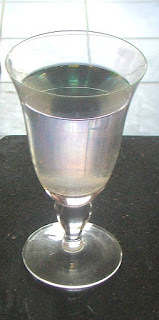 Tastes like Light
Tastes like LightBIRCH WATER
No recipe for this. I’m going to drink some more, and then freeze the rest in ice cubes I can enjoy in my regular water during the summer.
But if you want to learn more about possible uses for Birch sap, try fergus the forager
.
Published on April 11, 2016 09:27
January 11, 2016
ROCK THE BEYOND, DAVID BOWIE
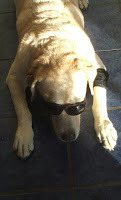 Ziggy, Labrador Messiah It’s a sad day for many of us, learning of David Bowie’s death. He not only created incredible music, incredible characters, incredible art, he also inspired many of us who walk on the edge of things to keep on walking. I’m one of those he inspired, in many ways. When I was first writing the books that feature Jaguar Addams his edgy honesty, combined with his chameleon complexity opened the door into a room where I could say, to her and myself, “See who you are. Be what you see.” I make soundtracks for my novels, and Bowie features prominently on hers. Maybe not the usual hits, but songs like ‘Sons of the Silent Age’ (they search through their one inch thoughts and decide it couldn’t be done - what a line!) and songs like Scary Monsters, and Moonage Daydreams all were part of the force and the cadence that become 8 novels so far. He also makes a brief appearance in my novel, The Amber, where the male protagonist, Nick Vecchio, is described thus, when he first meets the female protagonist, Stacey V. : At her side was a tall, lean man in jeans and an impeccably tailored black silk shirt. She squinted at him. He looked like a younger, dark haired version of David Bowie. He had the same sharp nose and carved jawline, the same crooked grin. And he had bi-colored eyes, one almost black and the other a greenish hazel. “I’ll be damned,” she whispered. “Maybe you will, but not quite yet,” he replied. He lifted his hand to the bartender. “I’ll get this one,” he said, and she was relieved that he didn’t have a British accent.
Ziggy, Labrador Messiah It’s a sad day for many of us, learning of David Bowie’s death. He not only created incredible music, incredible characters, incredible art, he also inspired many of us who walk on the edge of things to keep on walking. I’m one of those he inspired, in many ways. When I was first writing the books that feature Jaguar Addams his edgy honesty, combined with his chameleon complexity opened the door into a room where I could say, to her and myself, “See who you are. Be what you see.” I make soundtracks for my novels, and Bowie features prominently on hers. Maybe not the usual hits, but songs like ‘Sons of the Silent Age’ (they search through their one inch thoughts and decide it couldn’t be done - what a line!) and songs like Scary Monsters, and Moonage Daydreams all were part of the force and the cadence that become 8 novels so far. He also makes a brief appearance in my novel, The Amber, where the male protagonist, Nick Vecchio, is described thus, when he first meets the female protagonist, Stacey V. : At her side was a tall, lean man in jeans and an impeccably tailored black silk shirt. She squinted at him. He looked like a younger, dark haired version of David Bowie. He had the same sharp nose and carved jawline, the same crooked grin. And he had bi-colored eyes, one almost black and the other a greenish hazel. “I’ll be damned,” she whispered. “Maybe you will, but not quite yet,” he replied. He lifted his hand to the bartender. “I’ll get this one,” he said, and she was relieved that he didn’t have a British accent.Beyond my writing, he also inspired the name for my yellow lab, who is Ziggy Stardust. And oh, is he ever. Ziggy ate the world, chowing down with Weird and Gilly, and the kitties from Mars. . . . As my nephew, talented musician Mark Shook says, he is the Labrador Messiah. All this, and then, when Bowie played The Goblin King in Labyrinth, he inspired girls around the world to look at fearful sights and say, “You have no power over me.” Yeah. He did all that.
 The Man And all that brings me to my real point. I think Mr. Bowie would have us imagine that we can also rock our world. In fact, we can best carry on a legacy like his by doing what he did, what Jaguar suggests - see who you are, be what you see. No matter how much of a Space Oddity you are. As writers, performers, teachers, and general human beings, if we do that, honestly and with love, that will inspire others to reach for their own strange stars. Not too long ago I got an email from a reader who said something I wrote saved her life. Literally, kept her alive. I could hardly take that in, because it meant so much to me. I’ve always said that I tell stories for the same reason Scheherezade did - to save my sister’s lives. And here was a sister, telling me I’d actually done that. It was just one person, and the good goddess she knows I don’t have the fame or the fortune of someone like Bowie - well, not yet anyway - but it doesn’t matter. What matters is I did my job, exactly as I am, exactly as I was meant to, and it worked. So for those of us who are in mourning for the passing of a truly great artist, who walked the edge of all that’s strange, let’s honor him with continuing our work, strange and true. Rock the Beyond, David Bowie. Your work will continue to make us better human beings. And may ours do the same.
The Man And all that brings me to my real point. I think Mr. Bowie would have us imagine that we can also rock our world. In fact, we can best carry on a legacy like his by doing what he did, what Jaguar suggests - see who you are, be what you see. No matter how much of a Space Oddity you are. As writers, performers, teachers, and general human beings, if we do that, honestly and with love, that will inspire others to reach for their own strange stars. Not too long ago I got an email from a reader who said something I wrote saved her life. Literally, kept her alive. I could hardly take that in, because it meant so much to me. I’ve always said that I tell stories for the same reason Scheherezade did - to save my sister’s lives. And here was a sister, telling me I’d actually done that. It was just one person, and the good goddess she knows I don’t have the fame or the fortune of someone like Bowie - well, not yet anyway - but it doesn’t matter. What matters is I did my job, exactly as I am, exactly as I was meant to, and it worked. So for those of us who are in mourning for the passing of a truly great artist, who walked the edge of all that’s strange, let’s honor him with continuing our work, strange and true. Rock the Beyond, David Bowie. Your work will continue to make us better human beings. And may ours do the same. If you want to read more on the edge Jaguar Addams occupies, you can go to Wildside Press. If you’d like to find out what happens in The Amber , you can check it out on Amazon.
And here’s some comfort food, to get you through the day. I suggest you make it, turn on Labyrinth, and settle in for a good cry.
CHOCOLATE CHERRY BREAD PUDDINGI chose this because it’s both comforting and because it says pudding when it’s really not exactly that, is vaguely British.
INGREDIENTS1 (1-pound) loaf French bread, Italian bread, challah or brioche, cubed3 cups milk1 cup sugar1/2 cup cocoa powder1 cup GOOD mini chocolate chips4 eggs, lightly beaten (If you have duck eggs, now is the time to use them)1 cup cherry preservesWhipped cream or vanilla ice creamCinnamon and crushed walnuts (This also optional, if you want something cinnamony and something crunchy in the mix because you know the rule: PLAY WITH YOUR FOOD!)
DIRECTIONSPreheat oven to 325 degrees F.
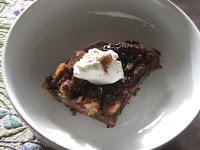 Comfort Food for a Sad DayLightly grease a 13 by 9-inch baking dish and place the bread in the dish. Sprinkle the mini chocolate chips over them, distributing evenly. In a large bowl, whisk together the eggs, cocoa powder and sugar. Heat the milk in a pot on medium, until just before it boils. Gradually add some of the milk to the egg mixture, whisking constantly. Then add that mix back into the milk, continuing to whisk constantly. (This process is called ‘tempering’ something which all artists know. It’s about getting the eggs used to the heat, so they create something smooth and creamy rather than scrambled and unpalatable)
Comfort Food for a Sad DayLightly grease a 13 by 9-inch baking dish and place the bread in the dish. Sprinkle the mini chocolate chips over them, distributing evenly. In a large bowl, whisk together the eggs, cocoa powder and sugar. Heat the milk in a pot on medium, until just before it boils. Gradually add some of the milk to the egg mixture, whisking constantly. Then add that mix back into the milk, continuing to whisk constantly. (This process is called ‘tempering’ something which all artists know. It’s about getting the eggs used to the heat, so they create something smooth and creamy rather than scrambled and unpalatable) Pour the mixture over the cubed bread in the pan. Let the mixture stand, stirring occasionally for approximately 20 minutes or until bread absorbs most of the milk mixture. (Because it takes time for your art to be absorbed and appreciated)
Bake pudding for 1 hour or until set. Check pudding by inserting a knife through the middle and it should come out clean.
Smear and dollop the cherry preserves over the top. Serve warm, with whipped cream or ice cream if desired.
Published on January 11, 2016 08:30



